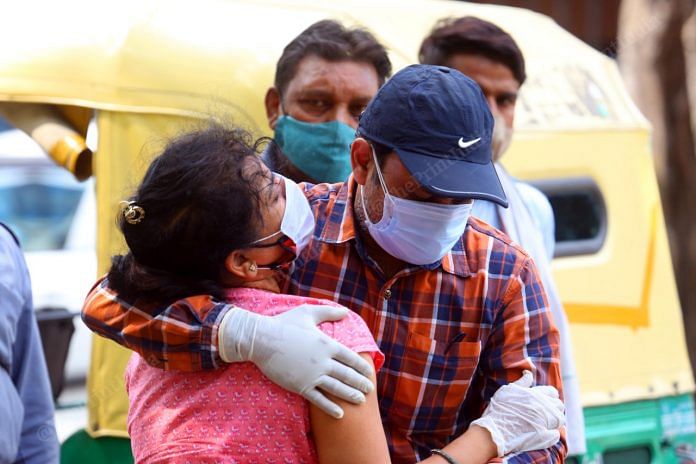New Delhi: India is one of 11 “populist governed” countries in the world that have mishandled the Covid-19 pandemic, according to a working paper published by V-Dem Institute, which is part of the University of Gothenburg, Sweden.
Set up in 2014, V-Dem is an independent research institute based at the University of Gothenburg, and has published a data-heavy worldwide democracy report each year since 2017. V-Dem stands for “Varieties of Democracy”.
The paper compares the performance of populist and non-populist governments over the course of the Covid pandemic in 2020. The sample includes 42 developed and developing economies, of which 11 are populist governed.
These countries are: India, Brazil, Czech Republic, Hungary, Israel, Mexico, Poland, Slovakia, Turkey, the UK and the USA. Their leaders, during the period covered in the report, included Narendra Modi, Jair Bolsonaro, Benjamin Netanyahu, Recep Tayyip Erdogan, Boris Johnson and Donald Trump.
The US, India and Brazil have seen the highest number of Covid-19 cases, followed by France, Turkey, Russia and the UK during the pandemic. India, which has the second highest number of cases after the US, is currently facing a new surge with over 3 lakh new cases every day, healthcare systems under extreme pressure, and black fungus now an epidemic in some states.
The paper concludes that the pandemic policy response score is lower in populist-governed countries and excess mortality due to the virus is higher in such countries, than in non-populist ones.
The non-populist countries include Australia, Austria, Belgium, Canada, Chile, China, Colombia, Denmark, Estonia, Finland, France, Germany, Greece, Iceland, Ireland, Italy, Japan, Latvia, Lithuania, Luxembourg, the Netherlands, New Zealand, Norway, Portugal, Russia, Slovenia, South Africa, South Korea, Spain, Sweden and Switzerland.
Also read: By the rivers of the heartland & across Vindhyas, proof which politics sucks & which works
Policies by populist govts tend to be ‘quick-fixes’
Based on the writings of Dutch political scientist Cas Mudde, the paper defines populism as a thin ideology that considers society to be separated into two groups — ‘the pure people’ versus ‘the corrupt elite’ — and argues that politics should be an expression of the general will of the people.
The paper finds policies enacted by populist governments tend to be ‘quick-fixes’. This means they are “less likely to implement far-reaching and targeted measures to contain the spread of the virus”. Populist governments tend to advocate anti-scientific attitudes and citizens subject to such views are “less likely to take the virus seriously and comply with public health recommendations”, it adds.
To highlight differences between populist and non-populist governments, the paper analysed government responses from the Oxford COVID-19 Response Tracker, citizen behaviour from Google Covid-19 Mobility Reports and country-specific severity of the pandemic calculated by excess mortality.
Earlier this tear, V-Dem Institute came out with its fifth annual democracy report, titled ‘Autocratisation goes viral’, in which it downgraded India from “the world’s largest democracy” to an “electoral autocracy”, citing “muzzling” of the media, and overuse of defamation and sedition laws.
Also read: India is now only ‘partly free’ — Freedom in the World report downgrades status



